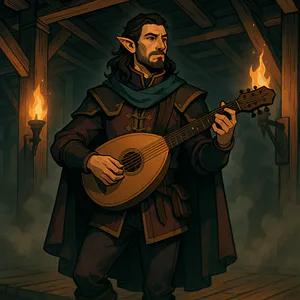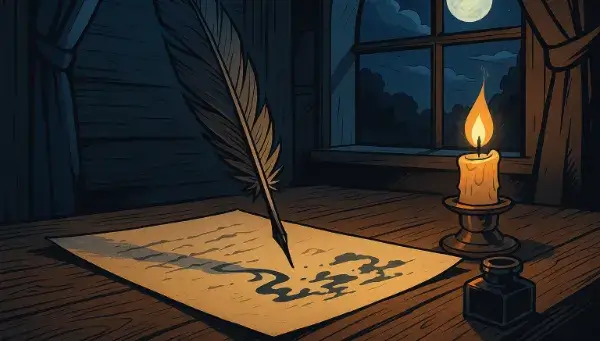Generate bard names
More Dungeons & Dragons Name Generators- <% result.name %>
Discover all Story Shack apps
Ignite Your Bard's Creative Spirit
A bard's essence is woven from tales, melodies, and the magic of performance. Use these questions to explore the depths of your bard's character and discover their unique flair for storytelling.
- What is the most memorable story your bard has ever told, and why does it resonate?
- What instrument does your bard play, and how does it reflect their personality?
- What inspires your bard's lyrics—love, adventure, or perhaps a heart-wrenching loss?
- How does your bard interact with their audience, and what impact do they hope to leave?
- What legendary figure or event does your bard aspire to emulate in their performances?
Frequently Asked Questions
Explore these common queries regarding the Bard Name Generator and enhance your character creation process.
How does the Bard Name Generator work?
It combines various cultural influences and artistic themes to create unique bard names with each click.
Can I specify the type of bard name I want?
Currently, you can't specify; however, you can regenerate until you find a name that captures the essence of your bard.
Are the names unique?
The names are randomly generated; with unlimited clicks, you'll discover a diverse array of options, though some may share similarities.
How many names can I generate?
You can generate an unlimited number of bard names; simply click 'Generate' as many times as you like.
How do I save my favorite names?
You can copy a name instantly by clicking on it, or use the heart icon to save it for later reference.
What are good bard names?
There's thousands of random bard names in this generator. Here are some samples to start:
- Dilan Solidbow
- Orvelle Dachahd
- Jonas Dabuni
- Nico Qiao
- Natan Kug
- Jennifer Peacetalon
- Karcsi Deepmantle
- Sibyla Clanshot
- Harriet Cenele
- Ashli Qien
About the creator
All idea generators and writing tools on The Story Shack are carefully crafted by storyteller and developer Martin Hooijmans. During the day I work on tech solutions. In my free hours I love diving into stories, be it reading, writing, gaming, roleplaying, you name it, I probably enjoy it. The Story Shack is my way of giving back to the global storytelling community. It's a huge creative outlet where I love bringing my ideas to life. Thanks for coming by, and if you enjoyed this tool, make sure you check out a few more!



















































